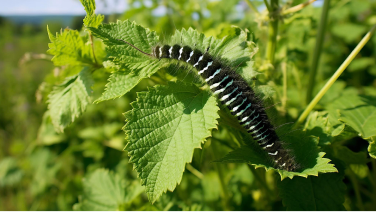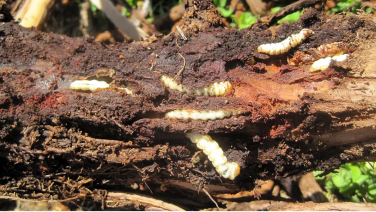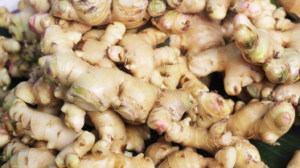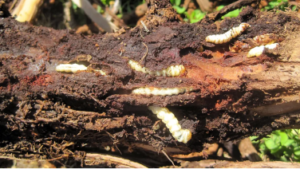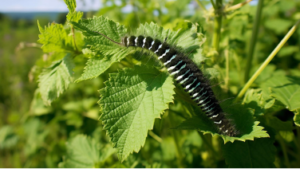- Home
- Mycorrhiza Fertilizer
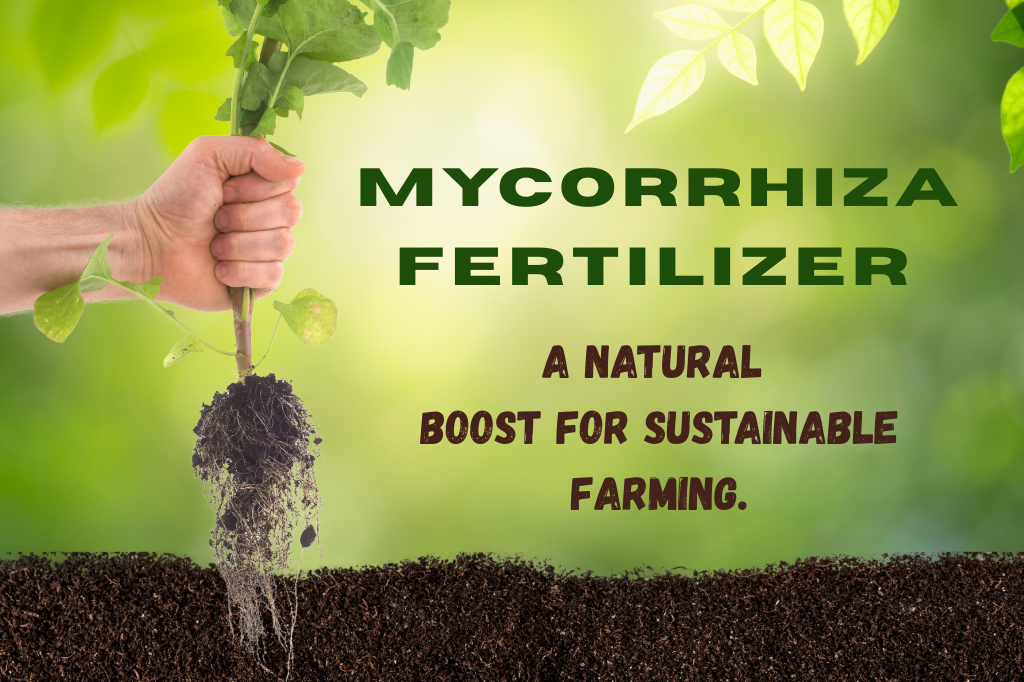
Mycorrhiza Fertilizer
Mycorrhiza Fertilizer: A Natural Boost for Sustainable Farming.
In the era of sustainable agriculture, biological solutions are gaining prominence for their efficiency, eco-friendliness, and long-term benefits. One such powerful biofertilizer is Mycorrhiza fertilizer. These terms are often used interchangeably, referring to a beneficial fungal product that forms a symbiotic relationship with plant roots and significantly enhances plant health and soil fertility.
This blog explores the science, benefits, and applications of Mycorrhiza fertilizers, providing clear insights into why they are becoming an integral part of modern farming systems.
What is Mycorrhiza Fertilizer?
Mycorrhiza fertilizer contains beneficial fungi that form a symbiotic association with plant roots. These fungi penetrate the root cortex and develop specialized structures called vesicles and arbuscules, which facilitate the exchange of nutrients between the soil and the plant.
The primary function ofMycorrhiza fertilizer is to expand the root’s effective surface area, significantly improving the plant’s ability to absorb water and vital nutrients—especially phosphorus, which is typically limited in many soils.
How Does Mycorrhiza Work?
When applied to the soil or root zone, the mycorrhizal fungi in mycorrhiza fertilizer quickly colonize plant roots and extend into the surrounding soil through an extensive hyphal network. This network functions as a natural extension of the root system, reaching into tiny soil pores that roots alone cannot access.
These fungi help absorb and transport essential, immobile nutrients such as phosphorus, zinc, copper, and iron back to the plant. In exchange, the plant provides the fungi with carbohydrates produced through photosynthesis. This mutually beneficial relationship enhances plant health, promotes stronger growth, and increases resilience to environmental stress.
Benefits of Using Mycorrhiza Fertilizer
1. Enhanced Nutrient Uptake
The most significant advantage of using mycorrhiza fertilizer is enhanced phosphorus uptake. Phosphorus plays a vital role in energy transfer, root development, and flowering. In addition to phosphorus, mycorrhizal fungi assist in mobilizing secondary nutrients and trace minerals that are typically difficult for plants to access from the soil, contributing to overall plant health and productivity.
2. Better Root System Development
Mycorrhiza Fertilizer promotes extensive root branching and root hair development. The fungal network effectively expands the root’s absorbing area, ensuring plants access nutrients and moisture from a wider zone.
3. Increased Drought Resistance
Thanks to the expanded hyphal network, plants treated with Mycorrhiza Fertilizer are better equipped to handle water scarcity. The fungi tap into deeper and distant water sources in the soil, reducing the plant’s stress during dry spells.
4. Natural Disease Suppression
Mycorrhiza fertilizers improve plant immunity and suppress root diseases by creating a protective barrier. They outcompete harmful soil-borne pathogens for space and nutrients, reducing the risk of infections without chemical intervention.
5. Improved Soil Structure
Mycorrhiza fungi excrete glomalin, a sticky substance that binds soil particles, improves aggregation, and enhances water retention. This contributes to better aeration, reduced erosion, and long-term soil health.
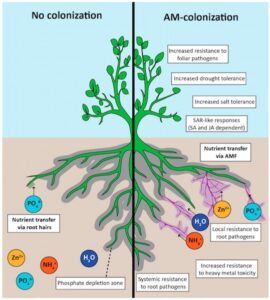
Application of Mycorrhiza Fertilizer in Farming
Mycorrhiza fertilizers are versatile and suitable for a wide range of crops such as cereals, vegetables, fruits, pulses, spices, flowers, and plantation crops.
Modes of Application:
- Soil Application : Blend with compost or FYM (farmyard manure) and apply during field preparation.
- Seed Treatment: Coat seeds with mycorrhiza fertilizer before sowing to encourage early root colonization.
- Root Dipping: Dip seedling roots in a mycorrhiza fertilizer slurry before transplanting
- Fertigation: Liquid formulations of mycorrhiza fertilizer can be applied through drip irrigation systems.
Ideal Time of Application:
At time of sowing, transplanting, or early vegetative growth stages when roots are actively growing.
Frequently Asked Questions
Q1: Are Mycorrhiza fertilizers different?
No. Mycorrhiza fertilizers often refer to endomycorrhizal fungi that enter plant roots. In agriculture, these terms are commonly used interchangeably due to their similar benefits.
Q2: Can Mycorrhiza fertilizer be used in organic farming?
Yes, Mycorrhiza fertilizers are 100% natural and approved for use in organic farming systems. They help reduce chemical dependency and improve overall plant resilience.
Q3: How long does it take for Mycorrhiza fertilizer to show results?
Results vary based on crop type, soil condition, and environmental factors. However, benefits in root development and nutrient uptake are generally noticeable within a few weeks.



